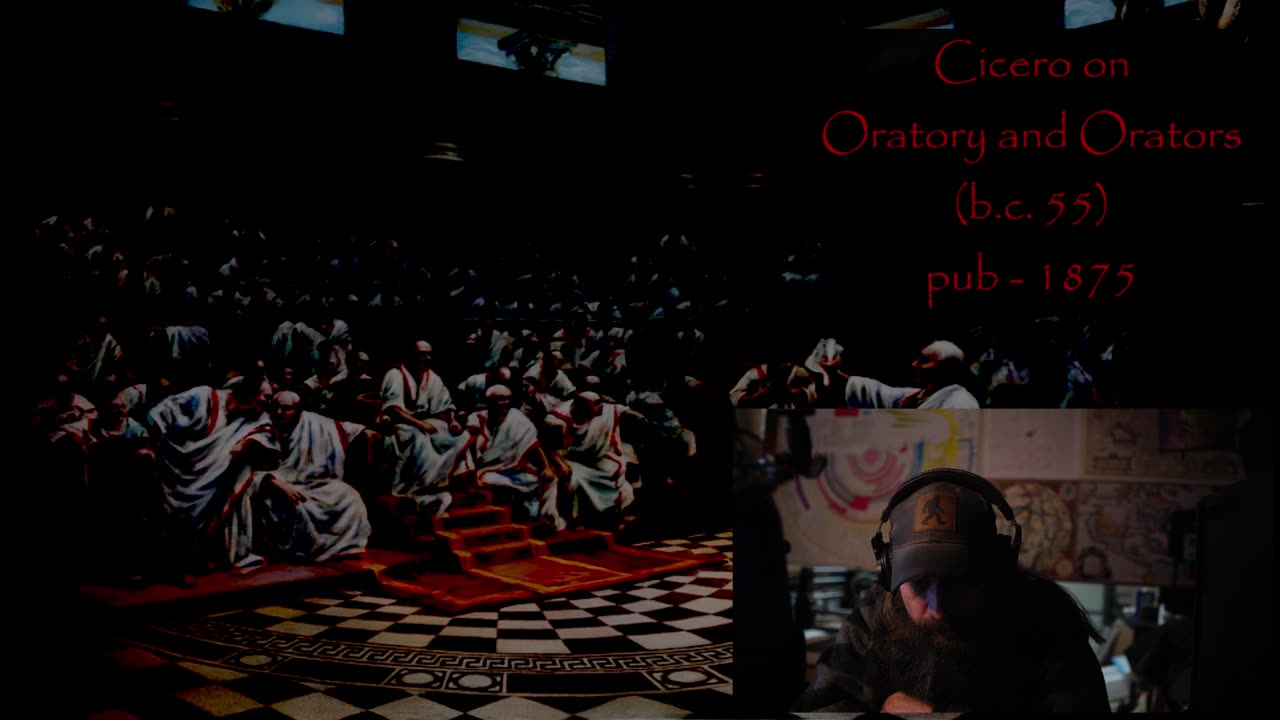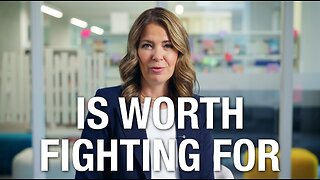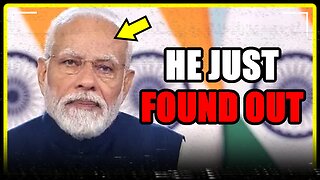Premium Only Content

Cicero on Oratory - LV LVI
Cicero on Oratory - LV LVI
In this discourse, Cicero emphasizes the essential relationship between law and oratory. He critiques the perception that one can excel in either field without the other, arguing that civil law is inherently significant and cannot be overshadowed by the embellishments of eloquence. Cicero points out that eloquence should enhance legal knowledge rather than detract from it, insisting that true oratory requires an understanding of legal principles.
Key Points:
The Importance of Eloquence in Law
Cicero discusses how eloquence enriches the understanding of civil law. He acknowledges a certain fear of losing the essence of legal knowledge while trying to embellish it with ornate language. Cicero believes that eloquence serves to showcase the significance of civil law.
Distinction Between Lawyer and Orator
Cicero argues that while lawyers can operate without eloquence, orators must have legal knowledge, defining a clear distinction where the mastery of each field is crucial yet interdependent. He suggests that one's ability as an orator is diminished without a foundation in law.
Cases of Legal Ignorance
The text reflects on examples of advocates who, despite lacking intricate legal knowledge, successfully argue significant cases. Cicero questions the reliance on eloquence in lieu of detailed legal understanding, presenting anecdotal evidence of cases where oratory might outshine legal expertise.
The Role of Legal Knowledge in Oratory
Cicero emphasizes that a firm background in law enhances a speaker's rhetorical prowess, particularly in legal debates. He addresses the tension between strict legal interpretations and the need for persuasive argumentation, ultimately arguing that effective advocacy may still rely heavily on eloquence.
Anecdote of Cicero and Galba
Cicero shares an anecdote involving the legal insights of two contemporaries, Cus and Galba, to illustrate the complexity and nuances of legal consultation. This example is used to demonstrate how eloquence can sometimes outweigh extensive legal knowledge in practical situations.
-
 15:31
15:31
Breaking Points
1 day agoIs Trump Planning VENEZUELA Regime Change?
19.4K14 -
 2:06:05
2:06:05
"What Is Money?" Show
2 days agoTrump Family Bitcoin Bet Will Trigger Nation-State FOMO w/ Matt Prusak (CEO American Bitcoin)
5.94K -
 1:04:36
1:04:36
Dialogue works
3 days ago $2.44 earnedMohammad Marandi: Iran Just Gave Israel a FINAL Warning…
10.6K6 -
 9:20
9:20
daniellesmithab
1 day ago3 Bad Laws
15.1K7 -
 9:22
9:22
MattMorseTV
17 hours ago $10.46 earnedINDIA just made a BIG MISTAKE.
58.3K54 -
 12:11
12:11
Nikko Ortiz
16 hours agoCrashout 6 Rumble
12.6K3 -
 22:35
22:35
GritsGG
16 hours agoThe KILO is BACK! The Best AR on Warzone FRIES!
21K1 -
 2:16:36
2:16:36
Side Scrollers Podcast
19 hours agoStreamer KICKED OUT of Renaissance Fair for Misgendering + Spiderman MELTDOWN | Side Scrollers Live
43.8K8 -
 12:29
12:29
The Pascal Show
1 day ago $1.75 earnedLOCKED IN A DUNGEON?! Parents Arrested After 5 Children Found In 'Dungeon' At Home
14.7K3 -
 LIVE
LIVE
Lofi Girl
2 years agoSynthwave Radio 🌌 - beats to chill/game to
317 watching